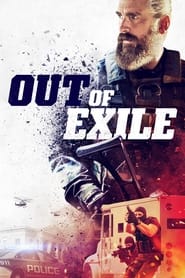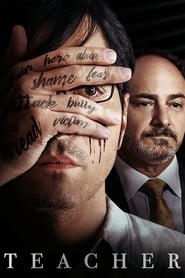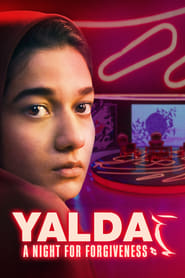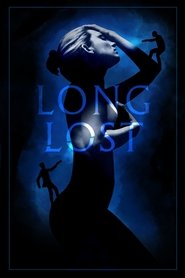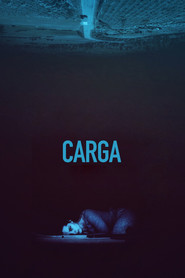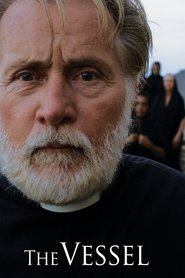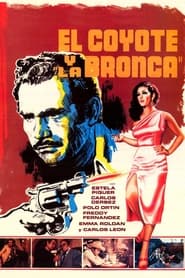Top Rated Drama Movies on Free Services - Page 301
-
Out of Exile
2023
Out of Exile
2023
star 6.3Recently paroled thief Gabriel Russell tries to balance his life and mend a troubled family as an FBI agent hunts him down, along with his crew after a botched armored car robbery. -
True Things
2022
True Things
2022
star 5.2A young woman living on the fringes of society becomes intoxicated by a stranger who overwhelms her quiet life. -
Topside
2022
Topside
2022
star 6.8Deep in the underbelly of New York City, a five year-old girl and her mother live among a community that has claimed the abandoned subway tunnels as their home. After a sudden police-mandated eviction, the pair are forced to flee aboveground into a brutal winter night. Determined to return home, they fight to find shelter as their world is thrown into chaos. -
History of the Occult
2023
star 7During the last broadcast of 60 Minutes Before Midnight, the most watched journalistic program on television, Adrián Marcato could expose a conspiracy and link the government to a obscure secret society. -
Almost Love
2019
Almost Love
2019
star 6.1Adam and Marklin’s 5-year relationship has gone from a passionate flame to a simmer, forcing them to reconcile with each other’s shortcomings while their friends endlessly search for love in New York City. -
Teacher
2019
Teacher
2019
star 6.5A high school English teacher goes to disturbing lengths to protect his favorite students from bullies, and challenge the power of a wealthy patron within the community. -
Clementine
2019
Clementine
2019
star 5Reeling from a one-sided breakup, heartbroken Karen breaks into her ex’s lakehouse. There, she strikes up a complicated relationship with provocative younger woman Lana. -
Yalda
2020
Yalda
2020
star 6.3Maryam accidentally killed her husband Nasser and is sentenced to death. The only person who can save her is Mona, Nasser's daughter. All Mona has to do is appear on a TV show and forgive Maryam. But forgiveness proves difficult when they are forced to relive the past. -
Robo
2019
Robo
2019
star 6.9Twelve-year-old Mitya Privalov dreams of becoming a superhero comics artist. But his robotics engineer parents want him to follow in their footsteps. -
Long Lost
2019
Long Lost
2019
star 5When Seth receives a mysterious letter inviting him to spend the weekend at a secluded mansion in the country, he soon realizes the people inside the house may know him better than he knows himself. -
Vlad the Impaler
2018
Vlad the Impaler
2018
star 5.8The true story of 7 oddly dressed fearless men of ottoman army fight against cruel Vlad. -
Darkness Falls
2020
Darkness Falls
2020
star 5.4After his wife's suicide, Detective Jeff Anderson becomes convinced that she has been murdered. Obsessed with his investigation, he finds out that his wife was the victim of a team of father-and-son serial killers and sets out to stop them. -
Home by Spring
2018
Home by Spring
2018
star 6.4When an ambitious event planner gets an opportunity she can’t refuse, she goes undercover as her boss and returns to her rural hometown. With the help of her family and the man she left behind, she pulls off the perfect spring retreat, but will she discover home is where her heart is? -
Carga
2018
Carga
2018
star 6.1A lorry, a road and an unpredictable destiny, all intersecting in a human trafficking network. Caught up in this web, Viktoriya has only one chance: fight to survive. -
A Song for Christmas
2017
A Song for Christmas
2017
star 6.3Pop superstar Adelaide Kay is so fed up with her controlling manager that she sneaks off the tour bus after their latest squabble. Though exhilarated to be free, she finds herself stranded in the freezing cold of a Pennsylvania winter, with no money and no plan. A local family, the Lapps, take her in. They know the true meaning of the season, even if they’re close to losing their tree farm. No one in the family recognizes Adelaide except Dillon, the oldest son. -
A Violent Life
2017
A Violent Life
2017
star 6Despite the life threat hanging over his head, Stéphane decides to go back to Corsica for the funeral of Christophe, a childhood friend and companion in arms, murdered the day before. On this occasion, the chain of events which made him, the learned petit-bourgeois from Bastia, shift from delinquency to political radicalization and then to clandestinity, comes back to his mind. -
Evil Nanny
2016
Evil Nanny
2016
star 5.8A couple hires a live-in nanny to watch the offspring while they work. At first, everything goes perfectly, but when an unsafe incident means the parents no longer want the nanny around, they find out this nanny is savvy at not being evicted from her live-in situation. So savvy, in fact, that she can make these parents' lives a true nightmare. -
The Vessel
2016
The Vessel
2016
star 5.3Ten years after a tsunami destroyed a small-town elementary school with all the children inside, a young man builds a mysterious structure out of the school's remains, setting the town aflame with passions long forgotten. -
The White King
2016
The White King
2016
star 5.3Djata is a care-free 12-year-old growing up in a brutal dictatorship shut off from the outside world. When the government imprisons his father, Peter, and Djata and his mother Hannah are labeled traitors, the boy will not rest until he sees his father again. -
Coyote and Bronca
1980
Coyote and Bronca
1980
star 7.1A murder forces Juan "El Coyote" and Trinidad "La Bronca" to escape from a life of easy money and prostitution and become a real couple.
 Netflix
Netflix
 Amazon Prime Video
Amazon Prime Video
 Apple iTunes
Apple iTunes
 Apple TV Plus
Apple TV Plus
 Disney Plus
Disney Plus
 Google Play Movies
Google Play Movies
 Paramount Plus
Paramount Plus
 Hulu
Hulu
 HBO Max
HBO Max
 YouTube
YouTube
 fuboTV
fuboTV
 Peacock
Peacock
 Peacock Premium
Peacock Premium
 Amazon Video
Amazon Video
 The Roku Channel
The Roku Channel
 AMC+
AMC+
 Kocowa
Kocowa
 Hoopla
Hoopla
 The CW
The CW
 Vudu
Vudu
 Starz
Starz
 Showtime
Showtime
 PBS
PBS
 Pantaflix
Pantaflix
 FXNow
FXNow
 Tubi TV
Tubi TV
 Kanopy
Kanopy
 Comedy Central
Comedy Central
 Crunchyroll
Crunchyroll
 Microsoft Store
Microsoft Store
 Redbox
Redbox
 Sun Nxt
Sun Nxt
 ABC
ABC
 DIRECTV
DIRECTV
 Crackle
Crackle
 Fandor
Fandor
 Plex
Plex
